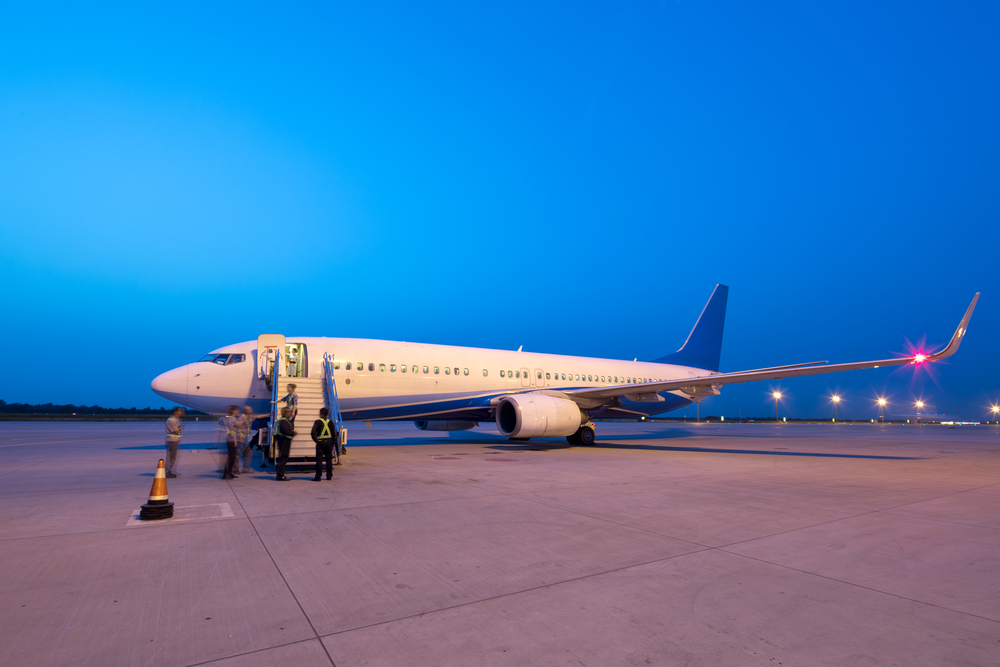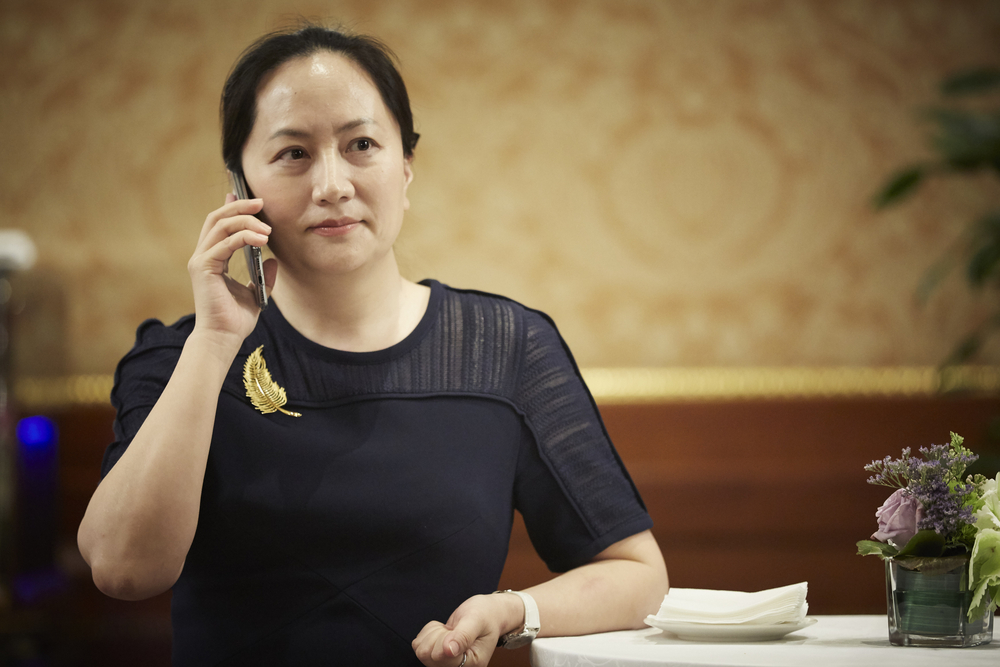Now that Meng Wanzhou has finally returned home to China and Canadians Michael Kovrig and Michael Spavor have been released from Chinese custody, a situation has been brought to a close which incited a great deal of moral controversy. The two Canadians were believed to be taken into detention in retribution for the arrest and detention of Meng, and given the state of relations between the U.S. and Canada, many wondered whether simply releasing Meng in exchange for the release of the two Michaels would simply be a better alternative. Last year, I covered some of the ethical concerns involved with this situation. But in light of the fact that the affair has now been settled, what is the status of these ethical issues in hindsight?
To briefly recap the situation, Meng was arrested by the RCMP in December 2018 at the request of the United States who charged her with conspiracy to commit fraud. After the U.S. requested extradition, the matter was placed before Canadian courts. That same month China detained two Canadians named Michael Spavor and Michael Kovrig who were later charged with espionage. The move by China has been taken to be retaliation for the arrest of Wanzhou after they threatened “grave consequences” for Canada and despite the fact that China insists that the arrest of the Michaels is unrelated. And, while Meng was placed on house arrest and forced to wear an ankle monitor while living in a Vancouver mansion, the two Michaels were subjected to hours of interrogation every day, were not permitted to go outside, and were limited in their ability to talk to their families.
As this situation stretched from weeks into years, many Canadians took the position that Canada should have resisted American calls for the arrest and extradition of Meng, or should have released her in exchange for the release of the Canadians. This proposal created a great deal of moral debate about the rule of law, arbitrary detention, and the potential precedents such a move might set in the world of “hostage politics.”
But, now the situation has been resolved. On September 24th, the Department of Justice announced that a deferred prosecution agreement had been reached with Meng which led to the withdrawal of its extradition request against her. That day, Meng boarded a plane and arrived in China after spending more than 1000 days under house arrest. On the same day, in an apparently unrelated sequence of events, China released the two Michaels “for medical reasons” who were then flown home to Canada.
It is worth noting that many believe that this situation was sparked by the United States as a politically motivated tool in their trade war with China. This is supported by remarks made by then President Trump and Secretary of State Mike Pompeo who suggested that they could intervene in the case for the sake of securing trade and by the fact that the arrest was unprecedented. China’s position, in response, is that this was politically motivated and that Canada conspired with the United States. Legal experts on extradition have called the case against Meng a “silly” “political type of enterprise.” Former Prime Minister Jean Chretien claimed that the “United States played a trick on Canada by forcing Ottawa to arrest Ms. Meng,” and many more prominent Canadians called on Meng to be released and a prisoner exchange arranged or who shared the view that this was a political matter and not a legal one. Thus, Canadians were faced with the dilemma of either releasing Meng and angering the United States or holding Meng and endangering its own citizens.
As I noted in my previous article on the subject, the Government of Canada’s position has always been that this is a legal matter falling under an independent judiciary, even accusing China of failing to understand such a concept. Meng, so the claim goes, had been charged with a crime and the extradition and trial process must be followed to preserve “the rule of law.” Thus, it would be a violation of such principles to offer to release Meng arbitrarily in order to secure a “hostage exchange.” A second argument was made that agreeing to release Meng in exchange for the two Michaels would set a bad precedent. Justin Trudeau argued that such an exchange would send a message to China that all they or anyone else had to do was arrest Canadians in order to pressure the Canadian Government and that this would put millions at risk.
So, how did this situation resolve itself? After several months of court proceedings the Justice Department offered Meng a deferred prosecution deal on the condition that she admit guilt in misrepresenting efforts of Huawei to circumvent sanctions against Iran. According to the Americans, there was “no link” between the deferral agreement and the desire to secure the release of the Michaels. After which, she was released in Canada and sent back to China. Simultaneously, after securing the “guilt” of the two Michaels for espionage weeks prior, China decided to release the two Michaels on bail for “health reasons” and they were subsequently sent back to Canada. Canada, the U.S. and China have all insisted that there was no deal despite the entire affair seeming “highly choreographed.”
Indeed, many see the entire affair as nothing but a prisoner exchange or “hostage swap.” Of course, we may not know for sure what exactly happened. The U.S. claims that the decision was reached by the Department of Justice free from political tampering. China claims that they too were following the rule of law in finding the two Michaels guilty after their confession and later releasing them. But if this just was a prisoner swap in the end, what does this mean for those who wished to stand on principle or prevent the establishment of a precedent?
First, let’s consider that each side is being truthful: the resolution to this case was purely a legal matter, and that this was, as some believe, a triumph for the rule of law. It is difficult to see how. There is no legal consensus that the case against Meng wasn’t politically motivated to begin with. So, the fact that the issue was settled in a manner consistent with legal procedure doesn’t support the idea that this was a victory for the rule of law. If anything, we are still left with questions about whether the law is being used in an arbitrary way for political ends. But, there is also the public perception of the affair to consider as well. Given the seemingly suspicious nature of the exchange, one wonders whether the public will see this as a success for the rule of law?
On the other hand, if there was some sort of coordination; if, in the end, this situation was only settled by an exchange, then what is the point of standing on principle for the rule of law or because you are worried about setting a bad precedent? To what ends did it serve to insist on such principles just to engage in an exchange anyways? Could a great deal of suffering have been avoided to achieve a similar result? Did, at the end of the day, the detention of Meng and the two Michaels actually achieve anything as morally important as it ultimately cost in moral terms? As my previous article covered, it was always a murky argument that the rule of law would not permit the Canadian Government to facilitate Meng’s release, so the notion that because Canada stuck it out until legal proceedings could conclude that this was thereby a victory of the rule of law is not certain either.
Either way, this doesn’t seem like a great principled victory for the rule of law. Perhaps if there is a moral lesson to be learned for Canada it is that principles can be great ideals, but that their application must factor in the situation they are applied to. This is particularly true if, as in this case, it seems that following the rule of law in the way the Canadian government chose to conceive of such a principle only served to deny Canadians their rights for years.


